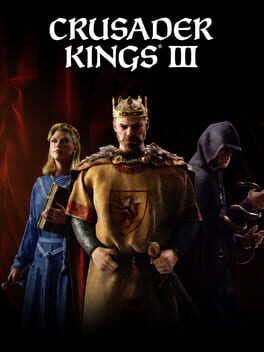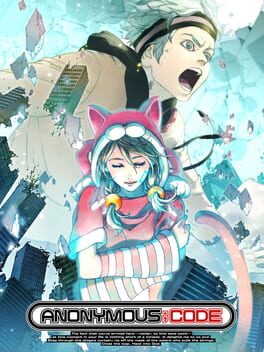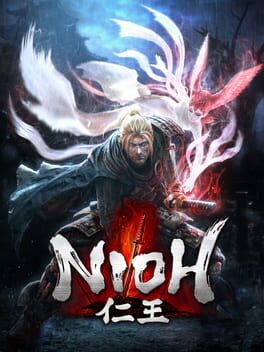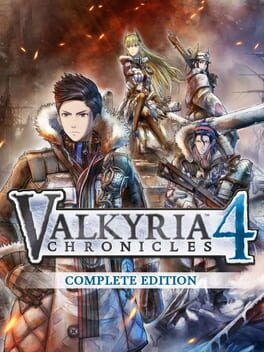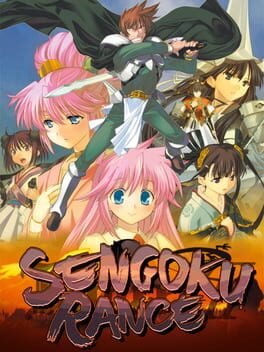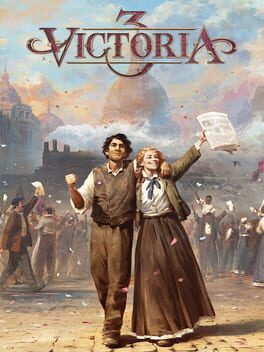2020
2022
2017
I’d like to advise against buying this game, but the only complain I could use to uphold such an opinion is to admit that I’m terrible at it. The reason I stopped playing is because I got tired of the unforgiving combat system and the amount of dedication required to master it enough to succeeds in every mission, which is something that many other players instead may find worth the effort (or easier than the agony it was for me). Should they manage to resist, they’d be hugely rewarded.
Nioh is stunning as an action title, fast paced, complex, with a very inspired design behind enemies and main characters, most of them colourful revivals of historical Japanese figures, and a level design complex but self-contained enough to never let the players feel lost. The plot was kind of a let-down, not because it was bad but because it was poorly narrated: the storytelling alternates between cutscenes, ADV segments and most of the explanations being done in the missions’ briefings and the game encyclopaedia. It’s a mess.
Yet you are not playing to be the best buddy of Oda Nobunaga, although that would’ve been absolutely groovy, you are playing to slay demons bigger than a house with some stylish sick blade combo and tons of hard to master but hugely rewarding abilities. Much like an ordinary RPG, building a character compromise between different weapons and side arts (in this case omnyo and ninjutsu) that grant the players to experiment with any sort of preferred combat style. The upgrade and enhance mechanics are really easy and intuitive to understand albeit quite expensive in the long run if you plan to stick to certain pieces of equipment. The one thing I cannot justify or appreciate no matter what is the loot system, more akin to a MMO where you’ll often discard your preferred gear five minutes after building it because the enemies drop better stuff at an absurd rate. Considering how every piece of equipment relies on individual stats, you could hold in your inventory ten swords with the same name but very different effects that not always conciliate with what you were trying or hoping to receive: RNG plays the major role in it and frankly, for the kind of game it is, it really felt unnecessary complex and arbitrary.
Edit: Yup, tried it again, I definitely hate this game.
Edit2: Hayabusa can go seppuku himself.
Nioh is stunning as an action title, fast paced, complex, with a very inspired design behind enemies and main characters, most of them colourful revivals of historical Japanese figures, and a level design complex but self-contained enough to never let the players feel lost. The plot was kind of a let-down, not because it was bad but because it was poorly narrated: the storytelling alternates between cutscenes, ADV segments and most of the explanations being done in the missions’ briefings and the game encyclopaedia. It’s a mess.
Yet you are not playing to be the best buddy of Oda Nobunaga, although that would’ve been absolutely groovy, you are playing to slay demons bigger than a house with some stylish sick blade combo and tons of hard to master but hugely rewarding abilities. Much like an ordinary RPG, building a character compromise between different weapons and side arts (in this case omnyo and ninjutsu) that grant the players to experiment with any sort of preferred combat style. The upgrade and enhance mechanics are really easy and intuitive to understand albeit quite expensive in the long run if you plan to stick to certain pieces of equipment. The one thing I cannot justify or appreciate no matter what is the loot system, more akin to a MMO where you’ll often discard your preferred gear five minutes after building it because the enemies drop better stuff at an absurd rate. Considering how every piece of equipment relies on individual stats, you could hold in your inventory ten swords with the same name but very different effects that not always conciliate with what you were trying or hoping to receive: RNG plays the major role in it and frankly, for the kind of game it is, it really felt unnecessary complex and arbitrary.
Edit: Yup, tried it again, I definitely hate this game.
Edit2: Hayabusa can go seppuku himself.
“Let’s go back, to a life worth living.”
Thematically speaking, it is hard not to be impressed by what Valkyria Chronicles wanted to achieve with its latest iteration. While proposing to their audience a new chapter after the success of the first Steam porting (because let’s face it, without that the franchise would be very well dead with Revolution being the nail in the coffin), SEGA also went heavy hand on hammering the antimilitarist theme of the series with a new fresh cast of characters in an imaginative brutal campaign set during the well-known Second Europan War.
As per usual, the characters are mostly anime tropes of hot-blooded rebels, humble quiet blokes and various shades of aggressive but cutesy women. The great difference this time is how the addition of side squad stories for the non-main characters helps to expand on each member of Squad E, to brush more detailed personalities and motivations for them to be enlisted and at odds with a war that ultimately none of them wants to be in, for no one likes to murder or to risk their own life if not driven by a greater personal drive.
Which, despite the obvious contradiction of giving the players achievements for killing a large number of enemies, it’s still a commendable effort. Many times, throughout the game, the war is not just painted as a fight for freedom from the Federation viewpoint anymore: by adding, with due reinterpretations, real war episodes such as the winter retreat from the Russian campaigns, human experimentation, suicide attacks and so on, the tone is definitely darker than is previous titles of the series. It is almost graceful to the players to keep the light-heartiness of the characters, in spite of most of everything, to counter the strong subjects at matter.
This does not mean that the characters are unable to perform according to the tone of the events, they all have their breaking points and harsh moments, there is a fair share of melodrama and idealism, but they fit well considering how real and painful some events might appear to those familiar with actual historical war scenarios. After all, it is better to draw a positive meaning from ruthless times rather than cynically accepting that there is no significance to suffering.
Aside from the differences in themes, the gameplay remains mostly untouched but still as strong as it was in the first game: the turn based strategic combat is more versatile now thanks to more Command Points (CP) provided each turn to perform more actions, the promotions to corporal for standard privates to add even more CP and how tanks now don’t cost 2 CP for each time they move. The new Grenadier class is brutal, hard to employ in every situation and extremely overpowered, but well balanced if considering how also enemies’ Grenadiers can give hell to the players’ troops in almost every mission they are present. Hard difficulty in side skirmishes is still as silly as it was before, with any actual challenge replaced by just adding more enemies to each map and leave the players to figure out how to not be wiped out in a couple turns, when the placement is not merely dumb: in one of the last skirmishes, an enemy camp was guarded by three snipers that weren’t blocking the players from capturing it, while also being put behind a cover that hindered their shooting; what was their point exactly?
Features in the headquarters, like the experience point boot camp, the R&D department to upgrade weapons and tanks, the mess hall taking the place of the cemetery for learning new orders, are pretty much left unchanged with maybe more possibilities for characters customization thanks to a larger arsenal of weapons and equippable accessories for extra stats. Orders mechanic are still as exploitable as before and, since the game actively rewards with more EXP and war funds finishing missions in the fewer possible turns, many will be tempted to avoid immersion in the strategical setting in favour of a more one-man-army, blitzkrieg approach for the added bonuses. Which is a shame, since Valkyria Chronicles is still the most similar experience available in the videogame industry to the splendid turn-based tactics of the latest XCOMs.
Valkyria Chronicles is a hard title to recommend, it is very unique to its own genre and since this fourth chapter is on every level, even graphics and game engine, the same as the first one, many players may as well stick to that. Or, they may happily gift SEGA with their money, buy this game and hope for more future development from this series. Certainly, Valkyria Chronicles 4 won’t give anyone something inherently new, notwithstanding the aforementioned differences in plot presentation and themes, but it is still a solid game with enormous potential and open to both a fast-paced and a more relaxed and strategical approach to war games.
Thematically speaking, it is hard not to be impressed by what Valkyria Chronicles wanted to achieve with its latest iteration. While proposing to their audience a new chapter after the success of the first Steam porting (because let’s face it, without that the franchise would be very well dead with Revolution being the nail in the coffin), SEGA also went heavy hand on hammering the antimilitarist theme of the series with a new fresh cast of characters in an imaginative brutal campaign set during the well-known Second Europan War.
As per usual, the characters are mostly anime tropes of hot-blooded rebels, humble quiet blokes and various shades of aggressive but cutesy women. The great difference this time is how the addition of side squad stories for the non-main characters helps to expand on each member of Squad E, to brush more detailed personalities and motivations for them to be enlisted and at odds with a war that ultimately none of them wants to be in, for no one likes to murder or to risk their own life if not driven by a greater personal drive.
Which, despite the obvious contradiction of giving the players achievements for killing a large number of enemies, it’s still a commendable effort. Many times, throughout the game, the war is not just painted as a fight for freedom from the Federation viewpoint anymore: by adding, with due reinterpretations, real war episodes such as the winter retreat from the Russian campaigns, human experimentation, suicide attacks and so on, the tone is definitely darker than is previous titles of the series. It is almost graceful to the players to keep the light-heartiness of the characters, in spite of most of everything, to counter the strong subjects at matter.
This does not mean that the characters are unable to perform according to the tone of the events, they all have their breaking points and harsh moments, there is a fair share of melodrama and idealism, but they fit well considering how real and painful some events might appear to those familiar with actual historical war scenarios. After all, it is better to draw a positive meaning from ruthless times rather than cynically accepting that there is no significance to suffering.
Aside from the differences in themes, the gameplay remains mostly untouched but still as strong as it was in the first game: the turn based strategic combat is more versatile now thanks to more Command Points (CP) provided each turn to perform more actions, the promotions to corporal for standard privates to add even more CP and how tanks now don’t cost 2 CP for each time they move. The new Grenadier class is brutal, hard to employ in every situation and extremely overpowered, but well balanced if considering how also enemies’ Grenadiers can give hell to the players’ troops in almost every mission they are present. Hard difficulty in side skirmishes is still as silly as it was before, with any actual challenge replaced by just adding more enemies to each map and leave the players to figure out how to not be wiped out in a couple turns, when the placement is not merely dumb: in one of the last skirmishes, an enemy camp was guarded by three snipers that weren’t blocking the players from capturing it, while also being put behind a cover that hindered their shooting; what was their point exactly?
Features in the headquarters, like the experience point boot camp, the R&D department to upgrade weapons and tanks, the mess hall taking the place of the cemetery for learning new orders, are pretty much left unchanged with maybe more possibilities for characters customization thanks to a larger arsenal of weapons and equippable accessories for extra stats. Orders mechanic are still as exploitable as before and, since the game actively rewards with more EXP and war funds finishing missions in the fewer possible turns, many will be tempted to avoid immersion in the strategical setting in favour of a more one-man-army, blitzkrieg approach for the added bonuses. Which is a shame, since Valkyria Chronicles is still the most similar experience available in the videogame industry to the splendid turn-based tactics of the latest XCOMs.
Valkyria Chronicles is a hard title to recommend, it is very unique to its own genre and since this fourth chapter is on every level, even graphics and game engine, the same as the first one, many players may as well stick to that. Or, they may happily gift SEGA with their money, buy this game and hope for more future development from this series. Certainly, Valkyria Chronicles 4 won’t give anyone something inherently new, notwithstanding the aforementioned differences in plot presentation and themes, but it is still a solid game with enormous potential and open to both a fast-paced and a more relaxed and strategical approach to war games.
2006
2012
Spec Ops is something I always wanted from a game but realized so that I won't get any satisfaction from it. It's a third person war shooter game dealing with the psychological, brutal side of war rather than putting the player in a power fantasy of being the super soldier saving the world and both of these aspects are flawed in too many ways to speak positively of my experience.
As a war story, it is an uninspired spoof of Apocalypse Now which tries to depict the same descent from the ordinary to hell but fails by giving the player too few choices to prove his or her ability to think instead of just mindlessly killing hordes of enemies. It wants you to feel bad for something that you can't avoid, we are far from the choices in Mass Effect where sometimes your errors and conduct meant consequences that later you'd be obliged to face. In Spec Ops the choice is only to kill, and the consequence is only to kill more, I'm so very reflecting on the meaning of war right now.
As a cover shooter, it blew my belief that every Gears of War-inspired game was better than Gears of War. Yager managed to make something more clunky, unresponsive, linear and uninspired that waving the same chainsaw rifle for three games straight. At least not all the enemies are bullet sponges this time. The AI, for enemies and companions, is obviously terrible and you'll have to do most of the work every time to either protect yourself from being the target for every conceivable grenade and saving your dumb soldiers because they charged against the machine gun, or the sniper, or the fortified hill position. Screw them, seriously.
I'm bashing this game pretty hard, but it is admittedly not as dumb as a story or unplayable as it may sound, its mechanics just didn’t work for me, at all, and the negative opinion mostly derives from large expectations of deep, thought-provoking content that the game did not meet and the frustration arisen in certain sections I replayed times and times again because the character controls as smoothly as a sack of potatoes.
As a war story, it is an uninspired spoof of Apocalypse Now which tries to depict the same descent from the ordinary to hell but fails by giving the player too few choices to prove his or her ability to think instead of just mindlessly killing hordes of enemies. It wants you to feel bad for something that you can't avoid, we are far from the choices in Mass Effect where sometimes your errors and conduct meant consequences that later you'd be obliged to face. In Spec Ops the choice is only to kill, and the consequence is only to kill more, I'm so very reflecting on the meaning of war right now.
As a cover shooter, it blew my belief that every Gears of War-inspired game was better than Gears of War. Yager managed to make something more clunky, unresponsive, linear and uninspired that waving the same chainsaw rifle for three games straight. At least not all the enemies are bullet sponges this time. The AI, for enemies and companions, is obviously terrible and you'll have to do most of the work every time to either protect yourself from being the target for every conceivable grenade and saving your dumb soldiers because they charged against the machine gun, or the sniper, or the fortified hill position. Screw them, seriously.
I'm bashing this game pretty hard, but it is admittedly not as dumb as a story or unplayable as it may sound, its mechanics just didn’t work for me, at all, and the negative opinion mostly derives from large expectations of deep, thought-provoking content that the game did not meet and the frustration arisen in certain sections I replayed times and times again because the character controls as smoothly as a sack of potatoes.
2022
